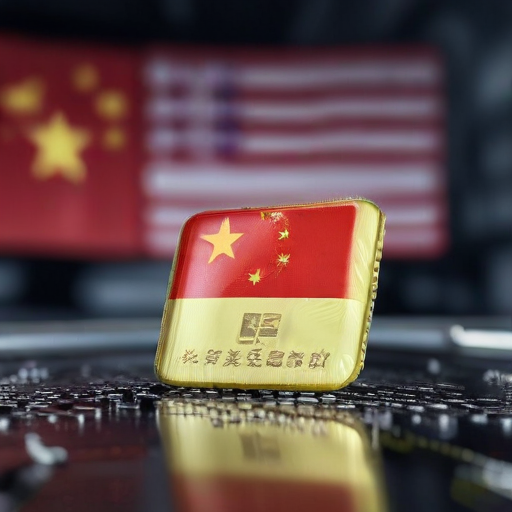The Chinese government has announced a ban on exports of essential semiconductor materials to the United States, further heightening trade tensions between the two nations. This move comes just a day after the U.S. introduced new restrictions aimed at limiting China’s capabilities in the advanced semiconductor sector.
The banned materials include gallium, antimony, and germanium, which the Chinese Commerce Ministry cited as being restricted due to national security concerns. The government will also impose stricter scrutiny on the export of graphite, a significant component in semiconductor production and electric vehicle batteries. This decision builds on earlier restrictions implemented last year, specifically targeting the U.S. market.
In a statement, China’s ministry emphasized that these measures are intended to protect national security and fulfill international obligations, including non-proliferation commitments. Gallium and germanium are crucial for various high-tech applications, while antimony has applications in military hardware.
Currently, China produces a staggering 94% of the world’s gallium and 83% of germanium. Recent customs data indicated that there were no exports of these materials from China to the U.S. during much of the year, indicating that the country has been preparing for such trade restrictions. Following the implementation of these bans, shipments of antimony products from China fell dramatically, highlighting the immediate effects of the restrictions.
In retaliation, the U.S. announced new restrictions on 140 companies, including prominent Chinese chip manufacturers. These measures encompass controls on numerous types of chip-making tools and software, aimed at curtailing access for technologies that could support advanced weapons systems and artificial intelligence applications.
In response to Washington’s actions, the Chinese government accused the U.S. of politicizing trade and technology issues, asserting that these export bans are a countermeasure to the U.S.’s aggressive stance. Experts suggest that this ongoing back-and-forth could disrupt global supply chains and lead to inflationary pressures if trade is adversely affected for third-party nations.
Some industry analysts noted that these metals are primarily sourced upstream in the supply chain. Many manufacturers are already stockpiling these materials due to the ongoing trade disputes. Furthermore, Chinese trade associations are encouraging businesses to seek local alternatives to U.S. chips and to explore partnerships with international companies, reflecting a strategic shift towards self-sufficiency.
The automotive sector in China expressed growing concerns regarding reliability in sourcing U.S. chip products, suggesting that ongoing tensions could undermine confidence in this critical supply chain.
In summary, the escalating trade conflict illustrates both countries’ ongoing power struggle in the technology arena. While immediate production impacts may be limited due to existing stockpiles, the long-term effects on global supply chains and technological collaboration may be significant. As both nations navigate these complex dynamics, there remains hope for improved cooperation that could lead to a more stable and innovative future in technology.
